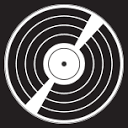
 All Music •
All Music •  Album of the Year (80%) •
Album of the Year (80%) •  Discogs •
Discogs •  Freebase •
Freebase •  Jazz Music Archives •
Jazz Music Archives •  MetaCritic •
MetaCritic •  Music Brainz •
Music Brainz •  Rate Your Music (3.46 / 5) •
Rate Your Music (3.46 / 5) •  WikiData •
WikiData •  Wikipedia
Wikipedia  Pop Matters •
Pop Matters •  The Guardian
The Guardian 
 All Music •
All Music •  Album of the Year (80%) •
Album of the Year (80%) •  Discogs •
Discogs •  Freebase •
Freebase •  Jazz Music Archives •
Jazz Music Archives •  MetaCritic •
MetaCritic •  Music Brainz •
Music Brainz •  Rate Your Music (3.46 / 5) •
Rate Your Music (3.46 / 5) •  WikiData •
WikiData •  Wikipedia
Wikipedia  Pop Matters •
Pop Matters •  The Guardian
The Guardian Though Break Stuff is Vijay Iyer’s third appearance on ECM in less than a year, it is the debut offering from the longstanding trio on the label. The pianist and composer has been working with bassist Stephen Crump and drummer Marcus Gilmore for more than a decade. They’ve issued two previous recordings together. Iyer usually works conceptually, and Break Stuff is no exception. In the press release he states that “a break in music is still music: a span of time in which to act.” We hear this all the time in modern music, whether it be the sounds that emerge from composer Morton Feldman’s extended silences, breakbeats by funky drummers or hip-hop samples of them, or instrumental breakdowns in heavy metal and bluegrass – they follow a moment where everything previous seems to stop. The Iyer Trio illustrate their concept in a 71-minute program that works from a suite of the same title: three works named for birds were adapted from his multi-media collaboration with author Teju Cole on Open City (illustrating in performance the novel of the same name), three standards, and works that deliver directly on the premise, including the stellar “Hood,” which was inspired by Detroit techno DJ Robert Hood. The head patterns are all single-note and chord pulses, fractioned by Gilmore’s precise skittering beats, breaks, and martial fills, and accented, stretched, and fragmented again by Crump. Despite its staggered parts and shifting dynamics, it is quite organic.
The reading of Thelonious Monk’s “Work” commences straightforwardly, following head-solo-head formula, but moves toward the margins in both the pianist’s and bassists’s solos. The trio’s interplay offers a very pointillistic illustration of the composer’s coloristic and rhythmic invention. John Coltrane’s “Countdown” is taken further afield. While it retains the composer’s sense of energy and flow, the pianist breaks down and reassembles its melody and sections with funky snare drops, stop-and-start legato runs, and an exceptionally syncopated bassline. The tune remains utterly recognizable despite their liberties. While opener “Starlings” is the most consciously lyric of the bird pieces, and the band begins to open up into a decidedly internal sense of swing, “Geese,” with its arco basslines, intermittently placed choirs, and brushed snares is almost wholly abstract until its lyric side comes into view little more than half-way through. Billy Strayhorn’s “Blood Count” is performed as a piano solo and played with a lyricism, spaciousness, and taste that would make the composer smile. The title track opens briskly with fleet statements, yet gradually reveals an inherent lyricism via Crump’s solo.
Break Stuff is modern jazz on the bleeding edge, a music that not only asks musical questions but answers them, and it does so accessibly and immediately, no matter the form or concept it chooses to express. This trio aims at an interior center, finds it, and pushes out, projecting Iyer & Co.’s discoveries.